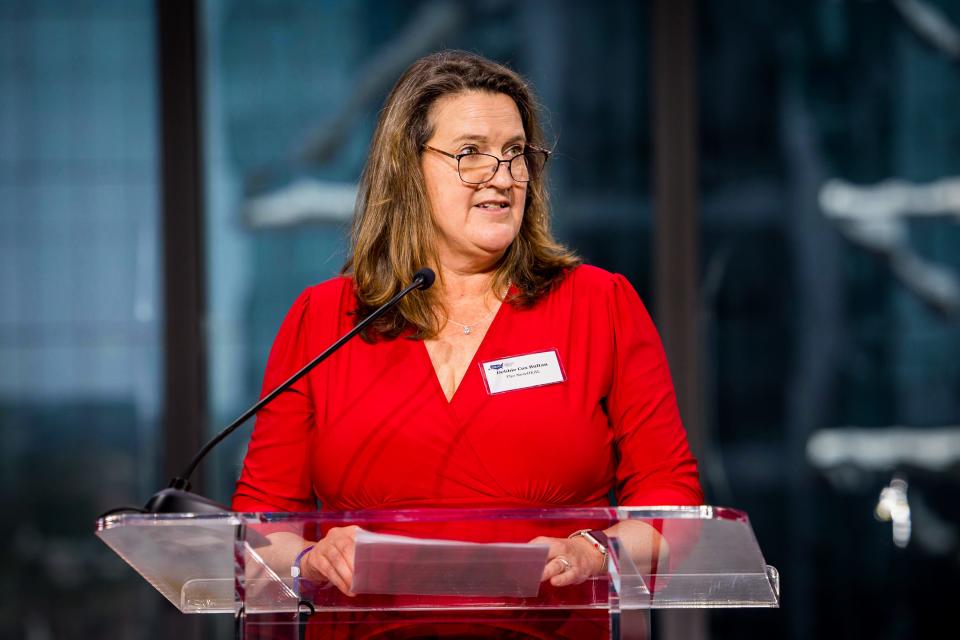Opinion: Michigan used federal COVID-19 funds in cities across Michigan. Here's how.
While the pandemic has mostly faded from front page headlines and the daily discourse, the past week marks an important milestone to remember COVID-19’s threats to our economy and recognize how our collective response will shape opportunities for Michiganders for years to come.
Two years ago last Saturday, President Joe Biden signed the American Rescue Plan Act (ARPA) into law, providing critical support for public health along with relief for working families nationwide. However, one of the law’s most important and enduring provisions can easily get overlooked: the state and local recovery funds that have permeated every community across the country. ARPA was a critical lifeline as states, counties and cities faced financial uncertainty. Further, COVID threatened both new and established businesses while exacerbating long-term challenges related to issues like housing, childcare, and broadband. Crucially, the law recognized that recovery would not happen overnight, giving state and local governments multiple years to use that funding.
Michigan is leading the way in realizing the potential of those investments, and today their full impact is just beginning to emerge.

The Growing MI Business grant program has put $400 million into thousands of Michigan businesses to initially help them stay afloat, and now to provide them opportunities to grow and expand, with the state’s unemployment rate having dropped from 6.2% to 4.3%.
In pursuit of Gov. Gretchen Whitmer's goal to make preschool free for all 4-year-olds by 2027, the state is building 2,000 new classrooms, having already provided bonuses to more than 38,000 childcare professionals.
And 22 statewide affordable housing and community development projects are just beginning to promote population and tax revenue growth.
Michigan's local leaders have also been among the most innovative in the country in putting ARPA resources to work. There is Oakland80, Oakland County Executive David Coulter's education and workforce development program that has helped more than 700 people, including by providing more than 200 with in-depth counseling, coaching, and education services.
Mayor Rosalynn Bliss' Grand Rapids homeless outreach team has fostered relationships with nearly 7,000 individuals experiencing homelessness, providing resources food, shelter, and substance abuse recovery.
And Lansing Mayor Andy Schor has supported graduation coordinators to boost the city's high school graduation rate.
These initiatives are being recognized this week among top ARPA investments by NewDEAL, a selective network of 200 state and local elected officials who are chosen for their practical, effective approach to governing.
Most importantly, none of these investments will fade with the COVID emergency. Instead, they are shaping Michigan for a generation.
The two-year anniversary is a moment to celebrate achievements so far, but not rest on our laurels. Funding from this law will continue flowing to states, counties, and cities for another four years, through the end of 2026.
With that context, we are thrilled to announce that Detroit has been chosen to host the NewDEAL Leaders’ Ideas Summit, happening May 15 and 16. The event will bring together state and local elected leaders from the NewDEAL network with policy experts to both showcase Michigan’s progress and to provide all of us with an opportunity to learn from one another and collaborate on innovative solutions to the most pressing issues facing our nation.
We’ll hear stories like the successful training of at-risk young people in Boston for green jobs, the impact of free mental health services on thousands of Colorado youth, and the more than 1,000 households supported by the Dallas Real Time Rapid Rehousing initiative that connects individuals and families not only to shelter but also to much needed services.
As we continue the work to ensure the Rescue Plan resources are spent wisely, we also commit to telling these stories in Michigan and beyond. Two years later, we can say without hesitation that these investments show the capacity of good government to solve problems and provide a blueprint for how our country should respond in future crises — investing in our people, and following the lead of the state and local leaders who best understand the challenges facing their communities.
Mallory McMorrow represents Michigan's 8th District in the state Senate, and is the Majority Whip. She is a member of NewDEAL Leaders. Debbie Cox Bultan is the CEO of NewDEAL Leaders.
This article originally appeared on Detroit Free Press: Opinion: Michigan used federal COVID-19 funds to boost state

